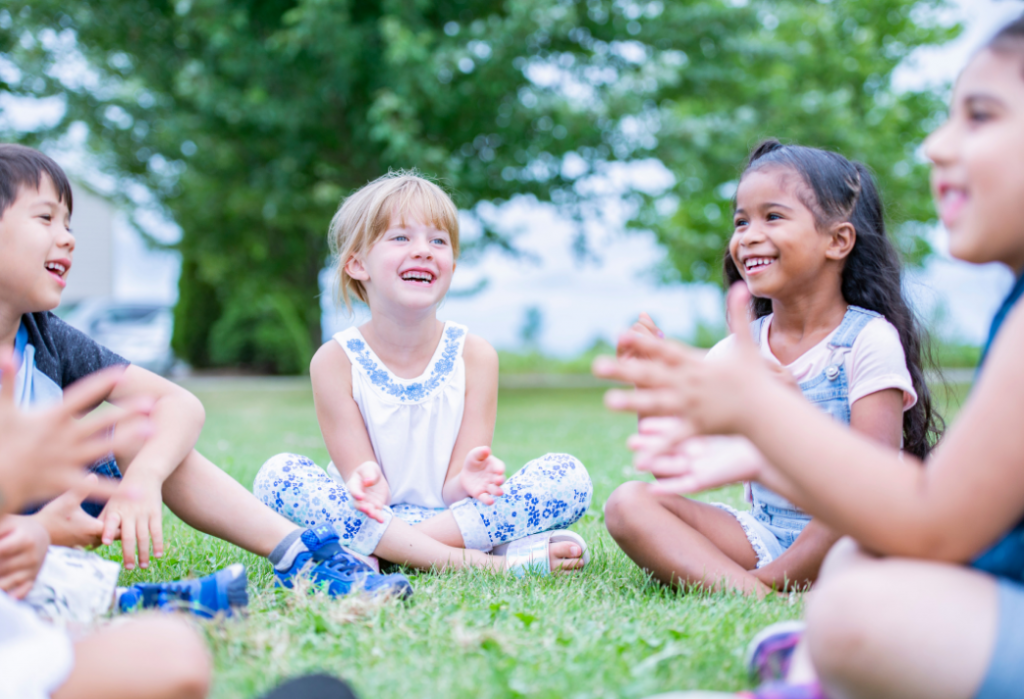
Outdoor Learning: Why is it so Important for our Children?
The ongoing pandemic has dramatically changed families' lifestyles for the foreseeable future. People are spending more time at home as outdoor activities are replaced with a rise in screen time. Even as lockdown restrictions are eased, people are more cautious about going outdoors and mixing with other people than pre-covid.

What are the benefits of outdoor learning?
Outdoor learning has huge benefits for both children and teachers, including:
Making learning more engaging
It can be hard to keep children focused in a classroom environment. Outdoor learning provides children with hands-on experiences that use their senses and keeps them interested. Rather than learning from a book, children can see, smell, hear, and touch objects they are learning about, such as trees.
Nurturing imagination and creativity
Roleplay builds a child's confidence, imagination, and creativity, making it an important part of their development. Encouraging role play outdoors gives children the freedom and space to express themselves and offers them new experiences that they can't get inside. Easy to store items such as pegs, blankets, boxes, and bean poles make excellent props to use for outdoor play.
Teaching children how to care for the environment
Outdoor learning gives children the opportunity to develop an interest in the environment and how to care for it, which can be difficult to do in a classroom environment. A child can see for themselves the impact that certain actions have on the world they live in. Research shows that children who know how to be environmentally conscious grow up to be responsible adults who can make a difference.
Keeping children physically and mentally healthy
Children who are on their feet and active have better health and fitness levels compared to children who spend most of the day sitting down inside. Children naturally enjoy the freedom of being outside and will move around much more than being inside. Spending time outdoors has been proven to lift your mood and lower anxiety in both children and adults. Setting activities outside also allow children to discover their strengths and weaknesses in an unpressured, enjoyable environment.
Boosting self-awareness, independence, and confidence
The outdoors also provides many opportunities to help a child develop their self-awareness, independence, and confidence by giving children learning activities where they can take ownership. These activities are often not possible in the restrictions of a classroom and give children the freedom to grow at their own pace.
Outdoor learning activities to try
You can find endless learning opportunities outside. Children love being outdoors and have so much fun that they do not even realize that they are learning.
Here are our top outdoor activities to try:
Cloud watching: Encourage children to point out the shapes and images they see in the sky. Clouds can be great inspiration for a story and can help spark a child's imagination. Watching the clouds is also a fun way to connect with nature and learn about the environment.
Den building: Children love dens. Constructing a den using items found outside is excellent for children's physical development, problem-solving, and social skills. Children will also learn how to work as part of a team.
Plant a fruit and veg garden: In addition to teaching children the importance of a balanced, healthy diet, growing fruit and vegetables is a fun way to enhance sensory development and teach responsibility.
Shadow art: Children love making shadows. When it's sunny, place some toys on a large piece of paper outdoors and ask the child to trace the shadow. Shadow art is great for developing necessary pen control skills and teaching science.
Enjoy the outdoors!
Outdoor learning doesn't need to follow a timetable or structure. The best kind of outdoor learning is simple and spontaneous, such as a walk-in in a new area to see what you can discover.
What outdoor activities do you enjoy doing with your children? Let us know in the comments below.


Submit your comment